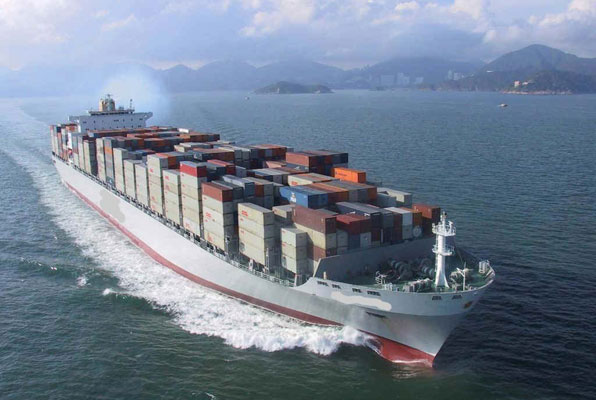When shipping both large and small amounts of goods, the surprising news is that sea freight remains the most economical method for both, says Mike Swindon from ZambeziFreight.com In order to make a qualified decision between sea and air freight, you’ll need to consider the freight forwarder you are working with and the size, shape, weight, and volume of the packages you are shipping. A good freight forwarding company will use this information to find the most economical route for your shipment.
Calculating Sea Freight Charges
The most important factor for sea freight charges is the total volume required. Shipping companies require an accurate measure of the total cubic meters of space your shipment will occupy. Utilize all the tools at hand to reduce the volume necessary and you can ship for substantially less money.
Numerous individual packages should be combined into a single pallet. Strap the packages onto the pallet and securely wrap them. Once you have finished loading, you will be able to accurately measure the required volume.
The tighter the packages are placed, the less volume you will need. Special cartons are available from your freight forwarding company that will easily and safely stack on the pallet. Each carton should be packed as tightly as possible to further reduce your bill.
Sea Freight Is Slow But Reliable
With proper planning, you can get your goods to customers or into the market using sea freight. Other methods such as air freight or over the road transport may get them their more quickly but they are costly. On the upside, freight that enters a country by water passes more quickly through customs than freight shipped by air. Additionally, it is not subject to changing road conditions and congestion like over-the-road transport is.
It is also a good way to ship to areas that are dangerous. Ports are well-guarded and you can avoid the troublesome areas that trucks travel through within the interior of countries experiencing civil disturbances. In short, while shipping by sea is slow, you can be certain that your goods will arrive.
Hazardous Goods Can Be Safely Shipped By Sea
Shipping containers can be modified to safely store hazardous materials. If your goods require special levels of humidity or temperatures within a specified range, sea shipping is a very viable option. During transit, the container can be monitored and steps taken to ensure a quality environment while your shipment in en route.
Once containers are sealed, they remain sealed until they reach their destination. Without the need for refueling stops, hazardous goods remain safely stored for the duration of the trip. Dangerous chemicals are more smoothly transported by sea than by air or road shipment methods.
Plenty Of Room For Large Goods
Large goods such as automobiles and heavy equipment are much easier to ship by sea freight than any other method. With large holds, ships can accommodate very large objects. Coaches, trucks, and machinery for factories are readily packed into large containers. In some cases, shippers will disassemble their item in order to ensure safety and compactness.
Cars and other vehicles may be done by commercial entities as well as for personal usage. Owners may use the roll-on/roll-off method and simply drive the vehicle onto the vessel. Ship workers will secure it with straps so that it does not get damaged during transit.
There are also special containers for cars. Owners arrive with their vehicle at the dock and drive it into a container that is then sealed for shipping. This method is very safe and used by many.
There are special rules that must be followed when shipping goods via the sea. Your freight forwarder will be able to help you comply with these rules and fill out the necessary documentation. Many companies allow you to track your goods as they travel across the world.
Sea freight is the best option for transporting large quantities of goods over very long distances. With a lower rate of taxation and an outstanding record for reliability, shippers who plan well can realize considerable savings on their freight bill.
Citations:
- What are the job requirements of a freight forwarder?
Amy Rice writes about sea freight, when not writing she enjoys going to the cinema, cycling and playing adventure golf.





